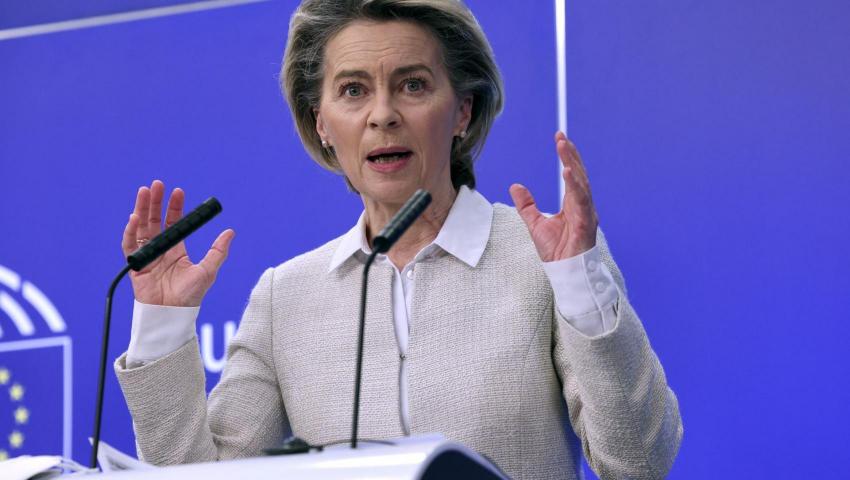The European Commission Is Preparing a Roadmap to Phase Out All Russian Fossil Fuel Imports

By Apostol Apostolov, 3E News Correspondent for the Benelux
The European Commission is expected to present, within two weeks, a Roadmap with specific measures for the gradual elimination of all imports of Russian fossil fuels.
Speaking from the United Kingdom, Ursula von der Leyen announced that the focus is increasingly on the opportunities presented by the North Sea — a policy she began pursuing during her first term. According to the Commission President, the North Sea holds enormous, still untapped potential. However, investor security and predictability are crucial to realize it.
Von der Leyen described how the North Sea, once a graveyard for abandoned gas storage, could become Europe’s largest "green" power station. Many investors have long been ready to pour millions into offshore wind and solar projects, demanding only regulatory security — something von der Leyen promised to provide.
According to the European Commission's plans, the North Sea could become central to a massive long-term action plan aiming for decarbonization, affordable energy, and enhanced interconnections to transmit solar and wind energy from Spain deep into Europe.
Eight countries united for the project:
Since 2023, Germany, Belgium, Denmark, Norway, the United Kingdom, Ireland, France, and Luxembourg have taken the initiative to develop energy interconnections in the North Sea region. At a summit, they agreed to invest tens of billions of euros in electric cables, generation platforms, and hydrogen pipelines over the coming years. Joint construction of infrastructure would save money and allow countries to exchange electricity.
The Netherlands has already taken a first step by launching a 2-gigawatt power link to the UK. In a few years, this link will allow the southern province of the Netherlands to receive nuclear-generated electricity from Britain when there is no wind. Conversely, surplus Dutch wind power can be sent to the UK.
The European Commission also highlighted the North Sea’s hidden underground resources. Since 2023, the Netherlands and Belgium, with the support of King Willem-Alexander, have collaborated on cross-border carbon capture and storage (CCS) projects. CO₂ from key industrial hubs like Antwerp, Ghent, Rotterdam, and Zeeland will be stored in depleted gas and oil fields under the North Sea.
The success of these projects depends on joint efforts and common goals. For von der Leyen, this is the only way to develop infrastructure and open new horizons beyond Europe.
“We must build networks, interconnections, and cables. We must connect our countries and diversify our energy supplies,” she said, mentioning projects like the ELMED interconnector between Italy and Tunisia — the first direct energy link between Europe and Africa — and another connection between Greece and Egypt, enhancing the energy security of both continents.
A recent report titled Grids for Speed by Eurelectric showed that investments in distribution networks must double — from €33 billion to €67 billion annually between 2025 and 2050. This is about 20% of what the EU spent on fossil fuel imports in 2023.
Failing to invest would threaten 74% of the future infrastructure for key decarbonization technologies such as electric vehicles (EVs), heat pumps, and renewable energy.
Investments will accelerate electrification and help the EU save €309 billion annually from reduced fossil fuel imports between 2040 and 2050. "For a successful energy transition, the EU needs huge additional network capacity. Investment volumes for distribution system operators must double," said Leonhard Birnbaum, President of Eurelectric and CEO of E.ON. "To succeed, we need attractive returns for investors, technological innovation, and rapid electrification to manage distribution charges."
